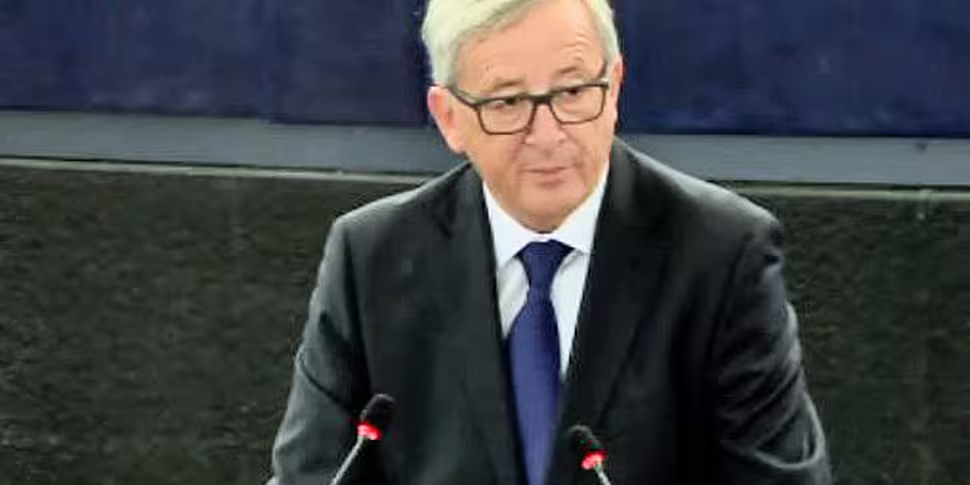The president of the European Commission says the European Union needs to take a further 120,000 refugees.
In a major speech to the European Parliament, Jean-Claude Juncker said that Italy, Greece and Hungary could not be left to cope with the refugee crisis alone.
Speaking earlier, Mr Juncker criticised member states for arguing amongst themselves instead of acting to alleviate the crisis.
He said we should remember that there are more O'Neills and Murphys living in the US than in Ireland.
"This has to be done in a compulsory way...160,000 that is the number. I hope that this time everyone will be on board. No rhetoric, action is what is needed".
The European Union "is not in a good place," Mr Juncker warned.
"There is a lack of Europe in the EU and there is a lack of union in the European Union. That has to change".
At times hitting his fist against the lectern, Mr Juncker said Europe had "clearly under delivered" its bid to find a unified response to the crisis.
He applauded Syria's neighbours for their handling of the crisis and said "frontier" European countries like Hungary, Italy and Greece could not be left alone to cope.
This is a time of "humanity and human dignity," he went say, adding that every life lost as a result of the refugee crisis is "one too many".
"Winter is approaching, do we really want families sleeping in railway stations, in tents on cold nights?...There is no religion, no belief, no philosophy when it comes to refugees," he said.
And Mr Juncker says a new list of 'safe countries' will help fast-track those in need.
Taoiseach Enda Kenny says that response will have to fit in with how the rest of Europe acts.
Meanwhile, Public Expenditure Minister Brendan Howlin says any money that Ireland and other countries spend on refugees should not be included in deficit targets.
It comes as the continent struggles to cope with the biggest movement of people into its countries since World War II.
Different political agendas across the European Union's 28 member states have resulted in an alarmingly disunited response to the crisis.
At one end of the spectrum, Hungary's right-wing government has replaced a policy of not allowing migrants free passage through its territory with an equally tough policy placing all priority on securing borders and little on the welfare of refugees already inside Hungary.
Hundreds of refugees, including women and children, are currently held in Hungarian refugee camps in conditions described as "dire".
At the other end of the spectrum, Germany and Sweden now operate an 'open door' policy in which almost every Syrian migrant will be granted residency.
The resultant pull factor for hundreds of thousands of refugees is testing the foundations of the European Union.
The Union's member states disagree fundamentally on balancing a pragmatic immigration policy against the values on which the European Union was founded.
Germany's Chancellor Angela Merkel is pushing for a system of mandatory quota for each member state. But many of the poorer nations oppose being told what to do by the richer western counties.
At a regional summit last week, the leaders of Czech Republic, Slovakia, Hungary and Poland said: "Any proposal leading to introduction of mandatory and permanent quotas for solidarity measures would be unacceptable".
The European Commission, which is the EU's executive body, had previously proposed sharing out 40,000 refugees but this was rejected by a number of members.
Under the new quota plan, Germany will take in more than 40,000 and France will take 30,000 from a total of 160,000 which it says need to be relocated from Italy, Greece and Hungary which, as "EU frontier" nations have borne the brunt of the influx to date.
The Cabinet here will meet later this week to discuss Ireland's response.
European Correspondent with the Irish Examiner Ann Cahill is in Strasbourg.
The crisis has cut deep rifts in the unity of Europe. It has tested the resilience of the Union as much as the financial crisis.
On Tuesday, the Austrian Chancellor Werner Faymann, who has allowed safe passage to thousands of migrants in recent days, said countries opposed to taking in refugees under an EU-wide quota system should suffer financial penalties.









